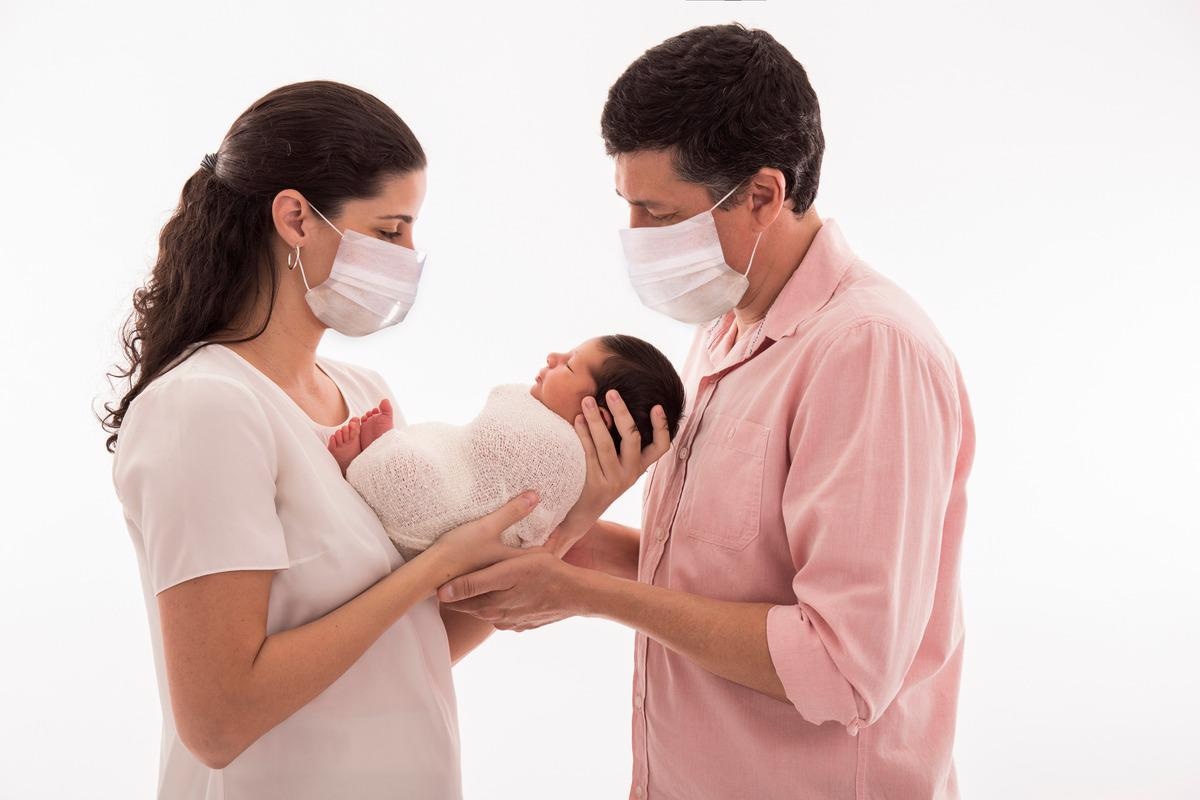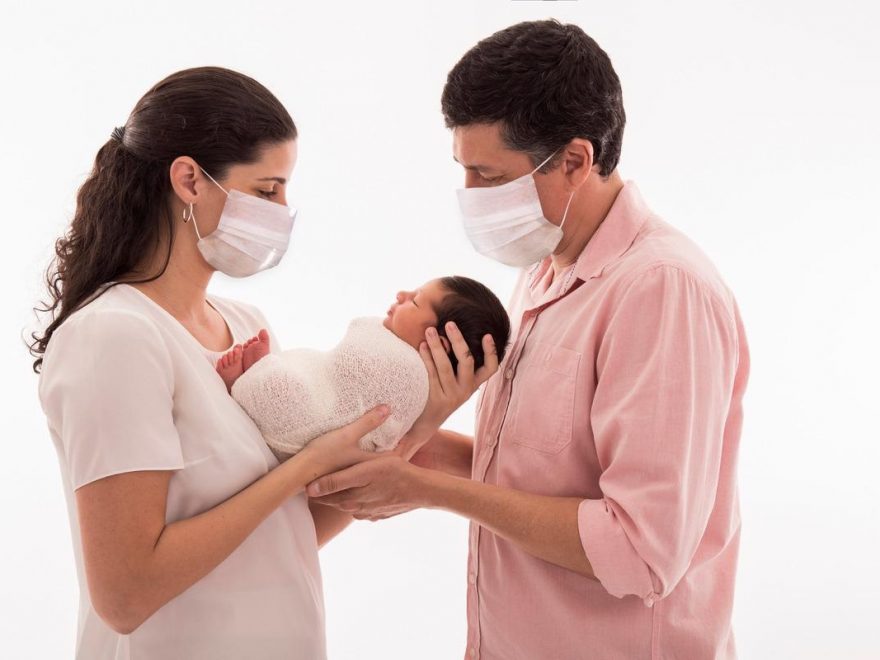The sex ratio at birth (SRB) has been defined as male/(male+female) live births. SRB, at the population level in South Africa, has been calculated to be 0.510, with male live births marginally exceeding female live births. Scientists stated that SRB performs as a sentinel health indicator that highlights adverse circumstances by attributing low scores and improved conditions with an increased score.
 Study: COVID-19 onset reduced the sex ratio at birth in South Africa. Image Credit: Paulo Vilela/Shutterstock
Study: COVID-19 onset reduced the sex ratio at birth in South Africa. Image Credit: Paulo Vilela/Shutterstock
SRB and unexpected stressful events
After unexpected stressful events, such as the death of a highly popular public figure, terrorist attacks, and large-scale riots, a decrease in the population SRB occurs transiently. Previous studies have indicated that these stressful events impact maternal neuro-immunoendocrine conditions. These studies have reported that male fetus is more vulnerable to such changes in conditions.
A Japanese study reported that the SRB dipped nine months after the Kobe earthquake. However, scientists suggested that these timelines of SRB decline are not a universal phenomenon, as it depends on differential contextual factors.
COVID-19 pandemic and SRB
Scientists proposed that the ongoing coronavirus disease 2019 (COVID-19) pandemic caused by severe acute respiratory syndrome coronavirus-2 (SARS-CoV-2), might cause a decline in SRB. Like many other countries around the world, South Africa responded to the sudden rapid increase in COVID-19 cases with nationwide lockdown measures that included the closure of schools, restrictions on gatherings, travel restrictions (domestic and international), etc.
A new study posted to the medRxiv* preprint server has focused on determining SRB in South Africa after the COVID-19 pandemic.
In this study, researchers primarily hypothesized that stress induced by the onset of the COVID-19 pandemic might have caused a transient decrease in SRB in South Africa, around three to five months after the announcement of the COVID-19 pandemic by the World Health Organization. The secondary hypothesis includes SRB reduction months later, i.e., in December 2020.
In this study, scientists utilized publicly available records of monthly live birth data from Statistics South Africa. Researchers evaluated live births for a 100-month period from September 2012 to December 2020, considering the seasonality.
Key findings
The study showed that the SRB in South Africa was impacted by the onset of the COVID-19 pandemic. Scientists observed the lowest SRB of 0.499 in June 2020, i.e., three months after the first COVID-19 infection was reported and the lockdown in March 2020.
An inverted SRB was obtained, which indicated fewer male live births had occurred. Such an occurrence happened only once during the 100-month period from September 2012 to December 2020. The finding of this study is consistent with the hypothesis of previous studies that COVID-19 stress would result in a decline in SRB. The previous studies also revealed that adverse environmental conditions could lower the ratio of males to females.
Although research has shown that SRB decline occurs nine months post-occurrence of unexpected stress, the current study did not find evidence of such a trend in South Africa. The SRB estimation in December 2020 was almost similar to SRB estimates of previous Decembers. Scientists reported reduced SRB after three months following the onset of the COVID-19 pandemic in South Africa, indicating a mechanism that occurred during ongoing pregnancies. They observed an elevated risk of fetal death among males due to COVID-19 stress, which resulted in fewer liveborn males.
Scientists reported an increased maternal mortality rate among women who required hospitalization due to SARS-CoV-2 infection. Anxiety and stress in pregnant women were linked with the news of the COVID-19 pandemic in March 2020, which might have caused a disproportionate male fetal loss in June 2020.
A reduced SRB in December 2020, i.e., nine months after the onset of the pandemic, might be due to the increased protests/riots that occurred during that September 2020, which received significant media coverage. The Los Angeles protests could be the cause of SRB perturbation that occurred during the 3-5-month post-event window.
Conclusion
One of the limitations of this study is based on its adaptation to the ecological fallacy that has limited the ability to generalize findings to the individual level. However, arguably, the ecologic study technique is best suited to study how a population responds to stress conditions. Another limitation has been associated with the unavailability of data due to nationwide lockdowns, as the Department of Home Affairs (DHA) only offered limited civic services.
This study reported reduced and inverted SRB in South Africa in June 2020, for the first time, in a 100-month period. The decline occurred three months after March 2020, i.e., the onset of the COVID-19 pandemic in South Africa. The finding of this study indicates the onset of the COVID-19 pandemic initiated population stress, which affected pregnancy and public health in South Africa.
*Important notice
medRxiv publishes preliminary scientific reports that are not peer-reviewed and, therefore, should not be regarded as conclusive, guide clinical practice/health-related behavior, or treated as established information.
- Masukume, G et al. (2022). COVID-19 onset reduced the sex ratio at birth in South Africa. medRxiv. doi: https://doi.org/10.1101/2022.02.07.22270630 https://www.medrxiv.org/content/10.1101/2022.02.07.22270630v1
Posted in: Medical Research News | Medical Condition News | Disease/Infection News
Tags: Anxiety, Coronavirus, Coronavirus Disease COVID-19, covid-19, Mortality, Pandemic, Pregnancy, Public Health, Research, Respiratory, SARS, SARS-CoV-2, Severe Acute Respiratory, Severe Acute Respiratory Syndrome, Stress, Syndrome

Written by
Dr. Priyom Bose
Priyom holds a Ph.D. in Plant Biology and Biotechnology from the University of Madras, India. She is an active researcher and an experienced science writer. Priyom has also co-authored several original research articles that have been published in reputed peer-reviewed journals. She is also an avid reader and an amateur photographer.
Source: Read Full Article
